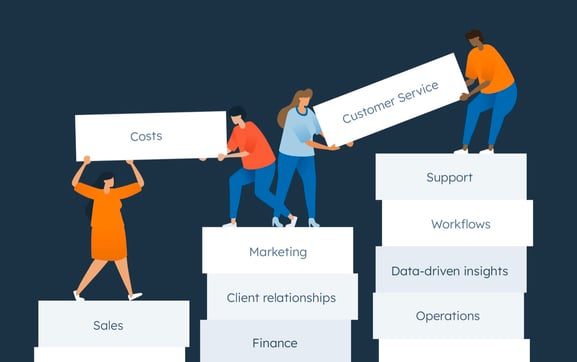Think about the last time you logged into a website that required a username and password. Oddly, you typed in the same credentials you use for other websites. But what if one of those other websites was compromised and your login information was exposed?
Like most business owners, you should always look for ways to improve your website security. After all, website security isn’t only essential if you want to protect your data and keep your customers safe, it’s also a must for SEO. Here’s how website security affects your enterprise SEO strategy.
1. Enhanced Search Engine Ranking
Website security has a direct impact on your enterprise SEO strategy because it’s a significant ranking factor for search engines. Search engines want to direct users to safe and trustworthy websites. So, if your website is secure, you’re more likely to rank higher in search results.
But that’s not the only way website security affects your enterprise SEO strategy. Security also indirectly impacts SEO by protecting your website from malware and other attacks. These attacks can damage your website and reputation, causing you to lose traffic and rankings.
Therefore, by investing in website security, you’re protecting your website from current and future attacks and enhancing your search engine ranking. If you need professional help, you can visit Jumpfactor for an enterprise SEO strategy that is scalable, effective, and compatible with your business goals.
2. Fewer Technical Issues
One way that website security affects SEO is by reducing the number of technical issues that can cause your site to be indexed poorly or even removed from search engines entirely. If you’re within the Raleigh area, you can contact a firm for IT consulting in Raleigh to help improve your business technology.
By ensuring that your website is secure, you can help avoid these technical issues and improve your overall SEO standing. In addition, website security can also affect the visibility of your website. If potential customers see that your website is not secure, they’re less likely to visit it.
Investing in website security can ultimately help improve your enterprise SEO strategy by making your site more visible and accessible to potential customers.
3. Lower Bounce Rates
Any business that relies on website traffic for sales needs to pay close attention to website security. Not only does a secure website inspire trust in potential customers, but it can also have a positive impact on your enterprise SEO strategy.
One of the critical ways that website security affects SEO is through the bounce rate which measures how many people leave a website after viewing only one page. A high bounce rate indicates that people are not finding what they’re looking for on your site, which can negatively impact your SEO.
On the other hand, a low bounce rate indicates that people are staying on your site and engaging with your content. Because website security contributes to a positive user experience, it can help lower your bounce rate and improve your SEO.
4. Better Lead Generation Results
Website security should be a top priority for any business that wants to ensure its website ranks well on search engine results pages (SERPs). Website security can directly impact your enterprise SEO strategy and the quality of your lead generation results.
First, website security is essential for maintaining a good reputation with search engines and website visitors. If your website is hacked or gets compromised by malware, search engines will likely remove your site from their index or penalize your site in the SERPs. Potential customers are much less likely to do business with a company whose website appears untrustworthy.
Second, website security affects the loading speed of your website, which is an important ranking factor for mobile and desktop searches. If your website is fast to load or doesn’t frequently crash, visitors will likely stay and reach your content.
5. Improved Branding And Reputation
Website security is not just about preventing data breaches and protecting your customer’s information. It’s also about safeguarding your branding and reputation. In today’s digital world, a website is often the first interaction potential customers have with a business.
If your website isn’t secure, it can give visitors the impression that you don’t take their security or privacy seriously. It can damage your brand and reputation, dissuading people from doing business with you. On the other hand, a secure website builds trust and confidence, so people are more likely to do business with you.
In addition, search engines like Google are increasingly considering website security when determining search rankings. A secure website helps improve your reputation and your SEO strategy.
Takeaways
Website security is essential for any business that wants to rank well on search engine results pages and generate quality leads. Website security can also improve your branding and reputation and help avoid technical issues that can negatively impact your SEO. When developing an enterprise SEO strategy, prioritize website security to ensure your website’s and your business’s success.





More Stories
WordPress Maintenance: Tips for WordPress Website Maintenance
What Makes a Good Website?
Websites For CPAs & Accountants To Effectively Market Accounting Services